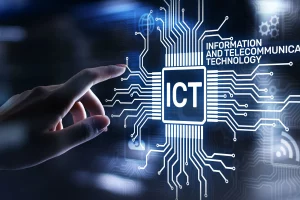Artificial Intelligence (AI) has rapidly evolved from a futuristic concept to a transformative force that is reshaping various sectors globally. One of the most critical areas where AI is making a significant impact is international security. The integration of AI into security frameworks offers both opportunities and challenges, necessitating a thorough understanding of its role and implications. This article delves into the multifaceted role of AI in international security, focusing on its applications, benefits, and associated risks.
AI in Surveillance and Intelligence Gathering

AI’s most prominent application in international security is in surveillance and intelligence gathering. Advanced algorithms and machine learning models can analyze vast amounts of data from various sources, such as satellite imagery, social media, and communication networks. This capability allows for real-time monitoring and predictive analytics, which are essential for identifying potential threats and preventing terrorist activities.
For instance, AI-powered facial recognition systems can scan and identify individuals in crowded places, aiding in the tracking of suspects and the prevention of criminal activities. Additionally, natural language processing (NLP) algorithms can sift through large volumes of text and audio data to detect signs of radicalization or impending attacks.
Enhancing Cybersecurity
In the digital age, cybersecurity is a cornerstone of international security. AI plays a crucial role in enhancing cybersecurity measures by identifying and mitigating cyber threats. Machine learning models can detect unusual patterns and anomalies in network traffic, flagging potential cyber-attacks before they cause significant damage.
Moreover, AI can automate the response to cyber threats, reducing the time it takes to neutralize them. For example, AI systems can isolate affected parts of a network, apply patches, and restore normal operations without human intervention. This rapid response is vital in protecting critical infrastructure and sensitive data from cyber adversaries.
Autonomous Weapons Systems
The development of autonomous weapons systems (AWS) represents a significant advancement in military technology, with AI at its core. These systems can operate without human intervention, making decisions based on pre-programmed algorithms and real-time data. AWS includes drones, unmanned ground vehicles, and robotic soldiers, which can be deployed in hostile environments with minimal risk to human life.
While AWS offers strategic advantages, such as increased precision and reduced casualties, it also raises ethical and legal concerns. The potential for autonomous systems to make life-and-death decisions without human oversight poses significant moral dilemmas. Additionally, the proliferation of AWS could lead to an arms race, increasing the risk of unintended escalations and conflicts.
Decision Support Systems
AI-powered decision support systems (DSS) are becoming indispensable tools for policymakers and military leaders. These systems analyze complex datasets to provide insights and recommendations, aiding in strategic planning and decision-making. For example, AI can simulate various scenarios and predict their outcomes, helping leaders to choose the best course of action in a crisis.
Furthermore, AI can assist in resource allocation, ensuring that limited resources are used efficiently. In humanitarian missions, for instance, AI can optimize the distribution of aid and supplies, ensuring that they reach the most vulnerable populations.
Border Security and Immigration Control
AI is also revolutionizing border security and immigration control. Automated systems equipped with AI can screen travelers more efficiently, identifying potential threats without causing delays. Biometric systems, such as fingerprint and iris scanners, enhance the accuracy of identity verification, reducing the risk of fraud and illegal entry.
In addition, AI can analyze migration patterns and trends, providing valuable insights for policymakers. This information can be used to develop strategies for managing migration flows and addressing the root causes of displacement.
Challenges and Risks
Despite its numerous benefits, the integration of AI into international security is not without challenges and risks. One of the primary concerns is the potential for AI systems to be hacked or manipulated by adversaries. If an AI system is compromised, it could be used to launch cyber-attacks, spread disinformation, or disrupt critical infrastructure.
Another significant risk is the lack of transparency and accountability in AI decision-making processes. AI algorithms are often described as “black boxes” because their inner workings are not easily understood. This opacity can lead to biases and errors, with potentially serious consequences in security contexts.
Moreover, the reliance on AI could lead to overconfidence in its capabilities, resulting in a diminished role for human judgment and oversight. While AI can process data and identify patterns more quickly than humans, it lacks the ability to understand context and make nuanced decisions. Therefore, a balanced approach that combines AI with human expertise is essential.
Ethical and Legal Considerations
The use of AI in international security also raises important ethical and legal considerations. The deployment of autonomous weapons, for example, challenges existing frameworks of international humanitarian law. There is an ongoing debate about the extent to which AI systems should be allowed to make autonomous decisions in conflict situations.
Additionally, the use of AI in surveillance and data collection must be balanced with the protection of individual privacy and civil liberties. Governments and organizations must establish clear guidelines and oversight mechanisms to ensure that AI is used responsibly and ethically.
The Future of AI in International Security

As AI technology continues to advance, its role in international security is likely to expand. Future developments could include more sophisticated AI systems capable of understanding and responding to complex human behaviors and emotions. Additionally, advancements in quantum computing could further enhance AI’s capabilities, enabling even more accurate and efficient data analysis.
However, the future of AI in international security will also depend on the establishment of robust regulatory frameworks and international cooperation. Countries must work together to develop standards and protocols that ensure the safe and ethical use of AI in security contexts.
Conclusion
AI has the potential to revolutionize international security, offering unprecedented capabilities in surveillance, cybersecurity, autonomous systems, and decision support. However, its integration into security frameworks must be approached with caution, considering the associated risks and ethical implications. By striking a balance between innovation and regulation, we can harness the power of AI to enhance global security while safeguarding human rights and values.









